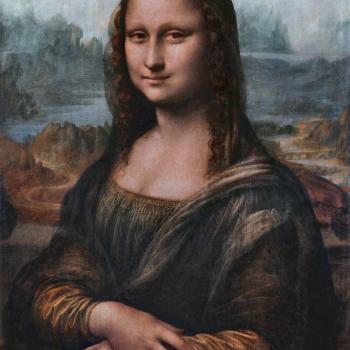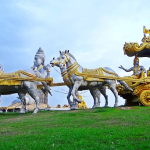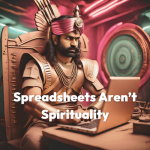Below is the video from the Jiddu Krishnamurti channel, titled J Krishnamurti – Observing ourselves. Enjoy! For more of J Krishnamurti’s videos check out the Krishnamurti video tag.
J Krishnamurti – Observing ourselves – Video
J Krishnamurti – Observing ourselves – Transcript
K: Look at a flower.Have you ever looked at a flower?Or have you looked at it given it a name passed it by.Or you say ‘How beautiful. Let me smell it.’All these are distractive actions which prevent youfrom looking at that flower.Q: The speaker is Krishnamurti one of the more challengingand creative men of our time. During the past four decadesthe writings and talks of Krishnamurti have attractedan increasing audience in Europe Asia and America.This series represents the first time that Krishnamurtihas allowed his talks to be filmed.In this 2nd of 8 programsfilmed principally in the Ojai Valley in CaliforniaKrishnamurti in public talks and in informal conversationspeaks directly to the fundamental problems of today.In particular he speaks of the problem of changeand suggests that the real problemis not changing society but changing ourselves.K: …various forms of entertainmentincluding churches but it has no meaning.Is it possible to empty the mind of the known?One must have asked this question vaguelyor with a purpose becauseone suffers one has anxieties whether it’s possible to go beyond.Or one has vague hints of it.Now we are asking itwe are asking it as a question which must be answeredas a challenge which must be responded to.And this challenge is not an outward challengebut a psychological inward challenge.And we’re going to find out whether it is possibleto empty the mindof the known.Look at that oak tree.Actually look at it.You are the observer and the oak is the observed.There is a space between you and the thing which is the tree.In that interval of space is time- right? -the time that has to be covered to see that object.In that interval of space there are all kinds of ideaswhich actually prevents me from seeing the fact of the tree.When you no longer nameno longer thought functioning as knowledge about that treethen is there a space between you and the tree?Then if you go into it very deeply and observe all thisthen the observer is the observedwhich is not the observer identifies himself with the tree.Observer is the image which has been created.Q: The observer is the image that has been created.K: He is the censor the entity that judges compares all that.Now and then he looks at the objecteither the tree or his own experienceor his relationship with somebody another.So the observer is the image looking at the imagewhich he has created about the other.So the relationship between the observer and the observedis not a relationship it is two images looking at each other.Now when the observer has no image at all -which is quite a tremendous problem inquirywhich is meditation all that -then the observer is the observed.’What is’ is the observernot the observer is looking at ‘what is’.Right?When the observer is the observed- and the observer has always actedas though the observed is something different from himselfthen he could act -but when he realises that the observer is the observedall action ceases on his partand therefore all effort.And therefore there is no fear at all.This requires a great deal of inward inquiryinward observationstep by step without coming to any conclusion.Why do you choose? What is the necessity of choice?If you see something very clearly as we just now sawwhat freedom implied -when the mind is only free that it can see the total -when you see that clearly there is no choice.It’s only the confused mind that chooses.Awareness takes place only when there is no choiceor when you are aware of all the conflicting choicesconflicting desires the strains -just to observe all this movement of contradiction.And knowing that the observer is the observedand thereforein that process there is no choice at allbut only watching ‘what is’.And that is entirely different from concentration.And that awareness brings a quality of attentionin which there is neither the observer nor the observed.When you really attend completely attend like nowif you are really listeningthere is neither the listener nor the speaker.And that state of attentionbrings about an extraordinary freshnessyouth – not youth;in America they use that word terribly -extraordinary sense of freshnessquality of newness to the mind.And this emptying of the mindwith all the experiences it has hadis meditation.If you observe very closely- and that’s one of the most arduous thingsand that doesn’t need effort at all -just to sit of an afternoonwhenever you have time and leisure to look at itto look at a flower to look at yourselfto look at all the movement of your thoughtand your feelings and your reactionsjust to observe without any choicewhich is the beginning of self-knowing.And without self-knowing man is caught everlastinglyin confusion and misery.Q: The thing that so strikes mein the talks and in the conversationsthat I’ve listened to is the contemporaneitythe immediacy and directness of…K: …our problems.Q: …what you are talking about and of our problems.And at the same timeso struck by the fact that most of the thingsof the world in which we liveare designed in one sense simplyto distract us from an understanding of the problem.K: Yes quite quite. Sir isn’t it reallywe have developeda whole network of escapesand we’re caught in those escapesand those escapes are preventing usfrom understanding the problems.The problems are there -India here or Russia anywhere -but I am not at all sure if religionsorganised religionsdogmas sects have not taken us awayfrom the central fact of being able to face these problems- not translate them you follow what I mean? -not try to go beyond them but actually face themand see if we can dissolve them.And thought creates the past the present and the futurewhich is time.There is time by the clock chronologicalchronological time- we are not concerned with that.If you have to keep an appointment and so onyou must have the chronological timeof yesterday today and tomorrow.But we are talking about the psychological timewhich thought has bred.And that time is the product of thought.I have had that pleasureI am going to have it and I shall have it.This time quality is created by thoughtbred put together by thought.And thought is time and it is time that creates fear.And without probing into this time-pleasure-thoughtwe’re always bound by timeand therefore time has never a stop.It’s only when there is an end to timethere is something totally new.Q: You speak of creating not a new consciousnessbut a new society. K: New society in relation toa mind that has completely undergone a revolutionwith regard to the psychological structure of society.Q: Yes. Which would mean a societywhich is not in time?K: No it has to be also. Society has to be in timebut the individuals who have freed themselvesfrom this structure psychological structurewill be freed of time. Therefore they won’t be a slave to timebut yet obey the laws of time in society.Q: It certainly isn’t modern man who has invented timebut the concept has an awful lot to do with time.K: Yes time. I think it is becausehe made himself incapable of facing ‘what is’the fact.Therefore he has a concept about the fact -the fact inwardly psychologically -and according to that concept formula he functions.Therefore the fact the formula and actionare contradictory with each other.And therefore he is in constant battle with himself.So is it possible to act without idea?Idea being organised thoughtand therefore formula. You follow?Q: Yes yes.K: It’s only the free mind can see the whole. Right?Q: But he must have some experience of the wholein order to see that thing.K: Ah no no.To see the whole thing you need a very sharp mindvery clear minda mind that’s not biased a mind that doesn’t say’This I like this I don’t like.’Q: You have eliminated the mind that is in a patternor expects to be led.It won’t ever see the complete truth.But does that necessarily mean that the mindthat is free will see the truth?K: Look if you want to seethe view of that valley from the hillyou take a survey of the whole thing don’t you?That means your mindis no longer merely fixed on the Thacher School- or a particular school – you look at the whole valley.So here is a whole complex map of life – businessall the rest of that – very complex.And to understand the whole of thatyou must be free to look.Therefore I say… therefore we say:free the mind from fear.As long as there is fearthat fear will take shelter in a belief -Christian or doesn’t matter what belief -because fear demandscomfort security hope and all the rest of it.So being afraid of something death or something elsethat fear must take shelter in something.Therefore whether you believe in reincarnation or notor some other belief it’s the same- all beliefs are the samebecause they are essentially born out of this fear.So really the question is:can fear be eliminated altogether?It’s like inquiring into if there is such thing as ‘God’.I put it in quotes – that word ‘God’ is so heavily loadedthat it has almost lost all its meaning.If one wants to discover itif there is or if there is not how does one proceed?Obviously to find outall types of belief must come to an endand therefore all forms of fear must come to an end.Belief is a form of hope. And I hope because I am in despairand I invent a belief a security a state of mind which saysthere is something which is permanentand I believe in that.And that belief obviouslynot only conditions all examinationall perception but it prevents the total inaction.Q: Sir what is thinking?K: You asked me what is thinking.So my mind begins.Let’s go into it a little bit.First I can say: I really don’t know.Then we can begin to analyseand say ‘it is response of memory’.You ask me what is my nameand I know because I have repeated it so oftenI tell you immediately.Now you ask me a little more complex question;it takes a time interval.In that time interval the mind is in operation to find the answer.But if you ask me something which I don’t knowwhich nobody knowswhich no book or philosophy answered itthen I can only say ‘I don’t know.’Q: You pose then a significant question and a significant answer.K: I really don’t know. Now when I say ‘I don’t know’I really mean I don’t know.That means I’m not waiting for an answeror expecting someone to answer meor looking for an answer.Which means my mind is completely alertbut I’m not lookingbecause I don’t know where to lookor to whom to ask. Now in that stateI begin to discoverbecause that state is real freedom.Such a mind is the religious mindno longer seekingno longer demanding experienceshe’s not caught in visions.And such a mindhas an activity totally differentat a different dimensionwhich thought can never possibly reach.Thought has a place very small placebut when one realises thatthought has no place at all.Which doesn’t mean you live on ugly little sentimentsemotions.So one can function normallyhealthily sanely in this worldwith a mind that is not cluttered up by thought.And it is only such a mind the religious mindthat can know something beyondall the imaginations and structure of man’s hope.There is no perfect society.And society doesn’t want man to be free.Q: Society does not want man to be free.K: Because freedom means according to social…freedom means disorderrevolt means disorder revolution means disorder.So society forbids that.But man is always seeking freedombut freedom merely outwardlyin relation to the social structure.Therefore he is in revolt against society but not revolt againstthe inner psychological structure which has created the society.Q: Yes. Therefore the genuine radical the revolution occurswithin the human being.K: Within the skin rather than withinthe framework of social order.We are taking a journey together into the wholepsychological structure of man.Because in the understanding of that structureand the meaning of itwe can then perhapsbring about a change in society.And society God knows needsa total change a total revolution.All similarity should be distrusted.You know what I mean?Q: Yes.K: So psychologically man has built this extraordinarystructure called society because inwardly he is that.But outwardly he has laid down laws how to control that.But inwardly we haven’t… Q: Yes I follow.K: Inwardly we are just wild!Q: It seems to me that society and the individual’s inner make-upthat a society and an individual’s inner make-upcan be governed by quite different laws.They can be two quite different things.And I know much less aboutthe laws that may govern an individualinwardly than I do about the laws of society.K: Quite quite. Naturally.Q: And yet at the same time from what little I know about the lawsthat govern society I find I have a profound pessimismin respect to creating a new society.K: Quite quite.Sir that’s why the problem is notchanging society at all. And we always go offtalking about changing society good societygreat society and all that.I think the real problem is:can there be a real mutation in the human mind?That is the real question.When that takes place society will look after itself.Q: It is as if the human society may have evolvedbut the human being as such has not.K: Has hardly evolved. And that of coursebrings up the problem: is there evolution psychologically?Not outwardly – there isbut psychologically is there such thingas evolution that is becoming betterchanging from this to thator creating an inward perfection? All that implies time.And time is essentially…through time you can’t possibly changethe psychological factor. Q: No.K: So if one can put away all idea of gradual revolution inwardlythen we have to face the fact’what is’ inwardly each minuteand see if that fact if ‘what is’cannot absolutely be eliminated immediately.That is the real question. I don’t know…There is no end to talking to words to attending meetingsand reading.But attending meetings reading discussinghas very little value.If attending meetings discussionsand all the rest of it is merely a stimulusthen you are dependentas people are dependent on LSD on musicon pictureson doing something.And as long as one is dependentone is in conflict one is in despair.And one has to comenot through readingto discover the whole process of knowing oneself.For the knowing of oneself isthe beginning and the end of all misery.Q: This has been the 2nd of 8 programspresenting Krishnamurtiwhose singularly challenging approachto the problems of our timeplaces him outside of any simple categorylike philosopher or religious leader.Subsequent programs will explore love fearconflict the aging of the body and death.In his next talk Krishnamurtiwill speak of: ‘Freedom from Fear’.\s
J Krishnamurti – Observing ourselves – Notes
Please note that this video titled J Krishnamurti – Observing ourselves is from J Krishnamurti’s Youtube channel. More information about J Krishnamurti is available on his website at www.jkrishnamurti.org. The transcriptions on this page are automated transcriptions. In case you find any errors please leave a comment below. If you would like to watch this video on the Youtube channel of Jiddu Krishnamurti then please search for J Krishnamurti – Observing ourselves on Youtube












